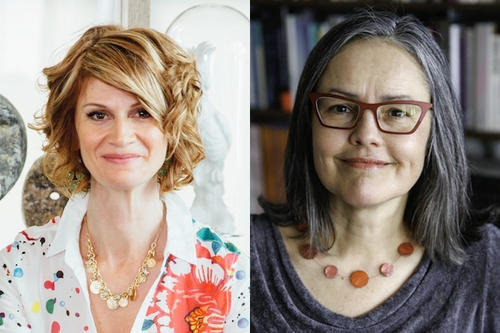
For many, New Year’s resolutions are opportunities to make desired lifestyle changes, though 80% of resolutions fail by the second week of February.
Theresa Nutt and Valerie Tiberius with the University of Minnesota are available to comment on how to make lasting and meaningful New Year’s resolutions.
Theresa Nutt
“Year after year, people flock to the gym in January. And evidence shows that most of those people won't continue going to the gym in February. Which begs the question, how do we make lifestyle changes that last?
"Here are seven strategies that will make your New Year’s resolutions last:
- Figure out the bigger why and vision for your well-being resolution to keep you motivated when change feels hard
- Create an intention vs. only goals so you have built in wiggle room as you figure out what actions work best for you
- Take small, consistent actions until you establish a new habit
- Build a support system of people who will cheer you on and hold you accountable
- Redesign your environment to make it easier to take your desired actions
- Expect and plan for setbacks, give yourself grace when they happen, and then get right back to your desired action
- Celebrate small wins and build in rewards to create momentum”
Theresa Nutt is co-director of the University of Minnesota’s Integrative Health and WellBeing Coaching Program in the Earl E. Bakken Center for Spirituality & Healing. Her areas of expertise include health coaching, holistic and integrative health, creativity, passion, purpose and self-care.
Contact information:
Theresa Nutt
[email protected]
949-728-8640
Valerie Tiberius
“I make resolutions in January and break them in February just like everyone else! But I do have thoughts about what makes our commitments meaningful and which ones are more desirable than others. We do better when we pursue goals that are wholehearted: well integrated with each other and with our beliefs and feelings.
"The best goals to prioritize are the ones that connect to our most whole-hearted values. So, if you want to do something that’s good for your health, think about how healthier habits relate to your other values. For example, if you have friends you love but don’t see enough and you want to start an exercise routine, find a friend to do it with you. That way working out becomes an opportunity to maintain friendships and promote your health. If you love to cook, and want to eat healthier food, take on vegetarian cooking as a culinary challenge. More whole-hearted resolutions may not be easy to keep, but you’ll have more confidence in their importance.”
Valerie Tiberius is the Paul W. Frenzel Chair in Liberal Arts and a professor and chair of the Department of Philosophy in the College of Liberal Arts at the University of Minnesota. Her areas of expertise include well-being, moral psychology and ethics.
Contact information:
Valerie Tiberius
[email protected]
- Categories:
- Arts and Humanities





